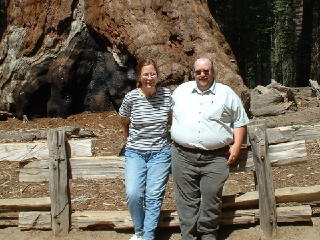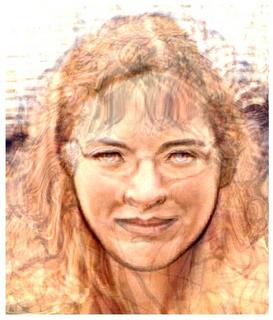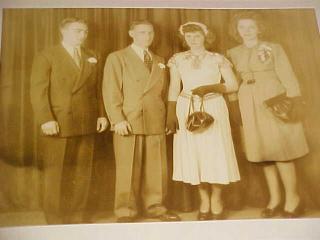Since we can't leave on our vacation until tomorrow because of the on call thing, Ron and I decided to start our relaxing by going to the movies, something we have always enjoyed. The movie we chose was THE ISLAND, which deals with the issue of cloning.
Cloning has always made me nervous for this reason: if human beings create life, if the spirit in that life is not God-breathed, then what has been created? You know, like in the story THE MONKEY'S PAW by W.W. Jacobs. When the parents wished their son back to life, they were scared to death of what was knocking on their door. Not who. Not their son. What.
Anyway, the doctor in the movie who runs the cloning business has a real god complex and he is not afraid to share that fact. He creates life. Only he and God can give life and take it away. At least that is what he thinks. And the clones, the ones who "win" a trip to "the Island"? They are innocent. Educated only to the level of a fifteen-year-old, the not-so-good doctor says they are not self-aware, that they are not human. That's the way he markets his "products" too. He tells his clients that he is obeying the Eugenics Laws, that the clones are nothing more than organs growing in jelly.
Now I have always wondered about this. Laws are broken all the time, and if people get what they want when the laws are broken, they usually don't care. So what makes us think that, since animals have already been cloned, human beings will not be? If they can be, they will be. I just hope they haven't been already.
And if you create life, don't you have a responsibility to it? I think that was the question in the movie AI too, although it has been a while since I have seen it. If you have a responsibility to it, then you can't clone a being for organs and such. Can you?
The TV series ENTERPRISE dealt with this issue as well, and although I really didn't like their solution, at least it had heart. Captain Archer had a clone created to save the life of his engineer. When push came to shove, though, he couldn't just kill the clone. The clone made the choice to sacrifice his life.
Just like in the ENTERPRISE episode, the clones in THE ISLAND have the memories of the person from whom they have been copied. At least that gives an answer to my question of what you have created if life isn't God-breathed. God gives life anyway; the memories are imprinted on the DNA used to clone. Another evidence of the Creator? When the doctor in THE ISLAND is questioned about disobeying the Eugenics Laws and bringing the clones to consciousness, he responds that unless that happens, the organs for which the clones were grown fail. And herein lies at least one problem with creating clones. If they have memories of a life, they have something they want to preserve.
The story in THE ISLAND would have turned out differently, I think, if the mercenary hired to retrieve the escaped "products" hadn't noticed an imprint, a brand of sorts, on one of them. He also had a brand, given to him after his father was killed in an African uprising. The brand was to mark him and his brothers as less than human. And he didn't like that at all.
Science fiction has always dealt with possibilities, the "what-ifs", both the good kind and the bad kind. How nice it would be if, like on STAR TREK, one syringe of medicine could cure kidney disease. How horrible it would be if we grew human beings just to harvest their organs.
Cloning has always made me nervous for this reason: if human beings create life, if the spirit in that life is not God-breathed, then what has been created? You know, like in the story THE MONKEY'S PAW by W.W. Jacobs. When the parents wished their son back to life, they were scared to death of what was knocking on their door. Not who. Not their son. What.
Anyway, the doctor in the movie who runs the cloning business has a real god complex and he is not afraid to share that fact. He creates life. Only he and God can give life and take it away. At least that is what he thinks. And the clones, the ones who "win" a trip to "the Island"? They are innocent. Educated only to the level of a fifteen-year-old, the not-so-good doctor says they are not self-aware, that they are not human. That's the way he markets his "products" too. He tells his clients that he is obeying the Eugenics Laws, that the clones are nothing more than organs growing in jelly.
Now I have always wondered about this. Laws are broken all the time, and if people get what they want when the laws are broken, they usually don't care. So what makes us think that, since animals have already been cloned, human beings will not be? If they can be, they will be. I just hope they haven't been already.
And if you create life, don't you have a responsibility to it? I think that was the question in the movie AI too, although it has been a while since I have seen it. If you have a responsibility to it, then you can't clone a being for organs and such. Can you?
The TV series ENTERPRISE dealt with this issue as well, and although I really didn't like their solution, at least it had heart. Captain Archer had a clone created to save the life of his engineer. When push came to shove, though, he couldn't just kill the clone. The clone made the choice to sacrifice his life.
Just like in the ENTERPRISE episode, the clones in THE ISLAND have the memories of the person from whom they have been copied. At least that gives an answer to my question of what you have created if life isn't God-breathed. God gives life anyway; the memories are imprinted on the DNA used to clone. Another evidence of the Creator? When the doctor in THE ISLAND is questioned about disobeying the Eugenics Laws and bringing the clones to consciousness, he responds that unless that happens, the organs for which the clones were grown fail. And herein lies at least one problem with creating clones. If they have memories of a life, they have something they want to preserve.
The story in THE ISLAND would have turned out differently, I think, if the mercenary hired to retrieve the escaped "products" hadn't noticed an imprint, a brand of sorts, on one of them. He also had a brand, given to him after his father was killed in an African uprising. The brand was to mark him and his brothers as less than human. And he didn't like that at all.
Science fiction has always dealt with possibilities, the "what-ifs", both the good kind and the bad kind. How nice it would be if, like on STAR TREK, one syringe of medicine could cure kidney disease. How horrible it would be if we grew human beings just to harvest their organs.



